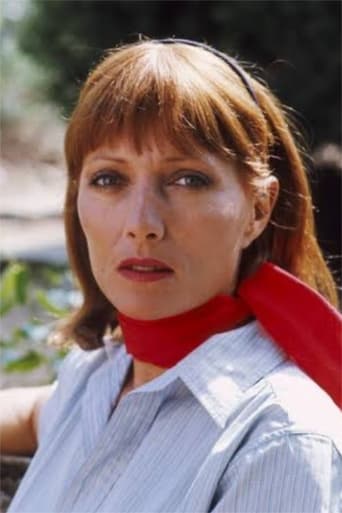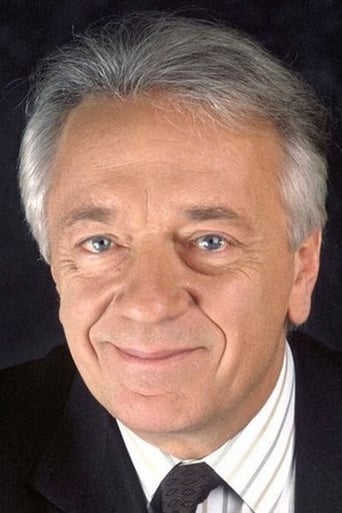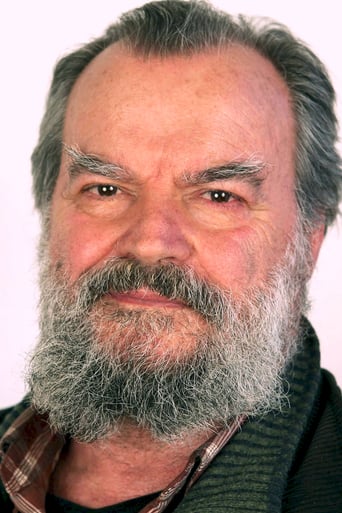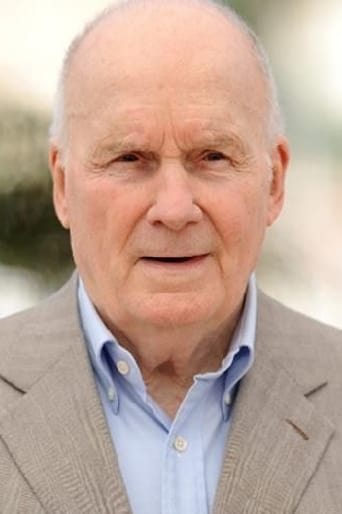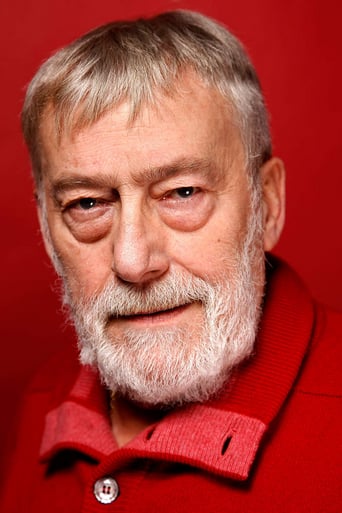StyleSk8r
At first rather annoying in its heavy emphasis on reenactments, this movie ultimately proves fascinating, simply because the complicated, highly dramatic tale it tells still almost defies belief.
Senteur
As somebody who had not heard any of this before, it became a curious phenomenon to sit and watch a film and slowly have the realities begin to click into place.
Yash Wade
Close shines in drama with strong language, adult themes.
Catherina
If you're interested in the topic at hand, you should just watch it and judge yourself because the reviews have gone very biased by people that didn't even watch it and just hate (or love) the creator. I liked it, it was well written, narrated, and directed and it was about a topic that interests me.
jromanbaker
I like Chabrol's early work but he is not the very great film director he is made out to be. Without Hitchcock and Clouzot this film would not have existed. He tones down and sometimes exceeds the pessimism of Clouzot while upping the sensationalism of the more sensational Hitchcock films. 'La Rupture' is the apotheosis of this excess.As a gay reviewer I cannot condone his vulgar and distasteful representation and exploitation of lesbianism, nor his stereotyped and exploitative representation of a person with learning difficulties and the linking of these two in a frankly disgusting scene of sexual abuse (yes, hetero males read and learn). Nor can I respond to the utter brutality towards the child at the beginning of the film, nor the husband being killed in such an atrocious way at the end. He had psychological problems that Chabrol did not have the maturity to explore.Audran performs to perfection as usual, unlike the rest of the cast. As for the mental state into which her character is placed at the end of the film, it compares with what Clouzot did at the end of his appalling film 'La Prisonniere'.There are also in my opinion too many characters, and it is far too long. Towards the so called climax, anything can happen. There is no inexorable logic and any sensationalist ending could 'work'.With the so-called lover of the Cassel character, Chabrol not only debases lesbians but women full stop!A hateful film, illuminated by Audran who seems as remote from it all as the balloons rising into the sky. I give the film four for her, but still worry about the high ratings given by other reviewers as it shows people actually relate to this debasement.
Red-Barracuda
The Breach (aka La rupture) is a film made by celebrated French director Claude Chabrol in the middle of his golden period at the turn of the 70's. Like most of his other films from this time, it is a psychological thriller that is more interested in character interactions than in suspense. While it is true that there is some of that present here too, there isn't a lot and the film only truly moves into thriller territory in its final quarter. In fact, the switch is quite jarring and has left some thinking it doesn't fit very well alongside what has gone before. I kind of liked the ending though, it isn't especially realistic and even becomes a bit surreal, yet the story on the whole has got an oddness about it generally, typified by the unsettling and somewhat off-centre musical score used throughout. The story revolves around a woman called Hélène who is the wife of a rich layabout drug addict. One day he attacks her and their child, leaving the boy hospitalised. Hélène attacks him back leaving him with a head injury. His rich father hires a sleazy friend of the family to befriend Hélène with the objective of incriminating her, leading to a divorce that would favour his son.Like a lot of Chabrol's best works this one stars his wife, the radiant Stéphane Audran who is, once more, extremely good and sympathetic as Hélène, Jean-Pierre Cassel is also impressive as her manipulative 'friend', while it would be remiss not to mention Catherine Rouvel also, who is a lot of fun as his highly sexed girlfriend who pleasingly spends most of the film in a state of undress (ooh la la). In fact, there is a plethora of oddball side characters in this one, most live in the boarding house where the majority of the action revolves around, such as three old ladies who continually play with Tarot cards, a mentally-backwards girl and an overly-dramatic actor. On top of this, it's nicely photographed, especially in the surreal park scene towards the end where things get a little trippy. The film criticises the bourgeois, with the rich grandparents acting like it is their right to dictate events purely on account of their financial strength. But the film works mainly as an off-kilter psychological drama/thriller, underpinned by fine acting and some good direction.
Claudio Carvalho
When the aspirant writer Charles Régnier (Jean-Claude Drouot), who is drug addicted and mentally ill, throws his four year-old son Michel against the kitchen wall in a rage attack, his wife Hélène (Stéphane Audran) defends her son and herself, hitting Charles several times with a frying pan. Her neighbor takes Hélène and Michel to the hospital and the boy has to be interned with a broken leg and concussion. Hélène works as bartender and has supported her family alone since her wealthy father-in-law Ludovic Régnier (Michel Bouquet) hates that Charles has married with someone uneducated from the lower classes. Hélène finds a low-budget boarding house nearby the hospital and rents a simple room to be close to her beloved son. Further, she hires a lawyer to get the divorce and the custody of Michel. Ludovic is advised by his lawyer that Hélène would win the custody and he hires the lowlife Paul Thomas (Jean- Pierre Cassel), who is totally broken and desperately needs money, to find dirt evidences against the Hélène. The vile Paul lures Hélène telling that he is very ill and moves to the boarding house. After a while, he does not find anything against Hélène and he decides to fabricate evidences to destroy her reputation. But things do not work as planned.I have seen many excellent films of the master of suspense Claude Chabrol, but "La Rupture" is probably the best film I have seen of this French director and a masterpiece of human cruelty and sordidness. Chabrol usually criticizes the bourgeois class in his movies, and the fight between classes is shown in "La Rupture", with a sharp demonstration of how destructive the prejudice and the power of money may be. The plot presents wealthy characters; some of them are just glanced like the actor in the boarding house but everyone has an important role in the dark story. Paul Thomas is among the most despicable villains I have ever seen, with his corrupted soul. I could write pages about this masterpiece but instead, I prefer to recommend to viewers of good taste to see it. My vote is ten.Title (Brazil): Not Available
jcappy
"La Rupture" (unsurpassed credit montage), serves as a glimpse, through two despicable characters, at masculinity unleashed, but at the same time its director, problematically--for him and the viewer, aligns himself with that same force.Monsieur Regnier and Paul Thomas, the rich man and the player, as a team, are in-- in the specific sense the film presents--the flush of power, their capacity for deception and violence unmitigated. Up against an array of very restricted lives, the romance of evil that surrounds them seems to be further amplified. Chabrol has a similar boundless power over these characters, but his is not expressed so openly, but is rather written into his style, language, and camera work, each of which can be impoverishing and disparaging. (It is not Mr. Regnier & Thomas, after all, who turn Emilie and Paul's mate into sexed items for the viewers pleasure or displeasure).Interesting that all the characters under the thumb of these convergent men are a group of insignificants who are either female or aligned with the female world, and with whom, despite their low status and victimization, Chabrol only occasionally sides. The actor boarder can be brave, and of course Helene can and does have a complex inner life and a defiant spirit (one albeit that's too costly) Yet, even she seems almost permanently glazed over, distressed, and exhausted. And her endless mothering of son and husband, while performing as a barmaid and being stalked--and drugged, is not exactly an argument for an independent identity.But look at the meager others. All live in a tiny sphere which amounts to a hospital lobby and a constrictive gray boarding house in Brussels. The doctor is no more than a bit actor in a play, entering and exiting his scenes on cue. The landlady is portrayed as a puritanical prude, who inflexibly rules her cloistered hotel in the manner of a mother cop. Her husband is the stereotypical castrated husband, small in stature, reclusive, passive, unable (and unwilling) to stand up to his daunting wife. Emilie, their learning-disabled limp daughter is an uncomfortably overlarge doll in a disarrayed white dress and showy glasses, who might be more appropriate to a porn factory and who ends up pornified in the end. No doubt we are instructed to think of her as the sole offspring of her anti-sex mother. Thomas' over-sexed playmate has label written all over her--the woman who can't get enough, who is so lusty and lusting that the thought of dressing never occurs to her--over more than a few camera visits. The three old women--or witches here--are not the three graces of Joyce's "The Dead." They are rather laughable loners who are much less primordial witch than dried up card-playing spinsters stringently served up as the three-witches symbol. Finally, Helene's husband is no more than a kind enraged distortion let loose on the world by his power-mongering and greedy father, which in turn aligns him here with the female camp--making him vulnerable onto death.In short, Chabrol exercises little vigilance or care for his characters. The undercurrents of hostility and misogyny have a kind of cumulative effect of manipulation and point to a lack of directorial integrity. His characters need more interiority and less violation. Hiding behind style, chicness, specious symbols, and technique doesn't cut it. I think a less heavy had and a less heavy mind is in order.

